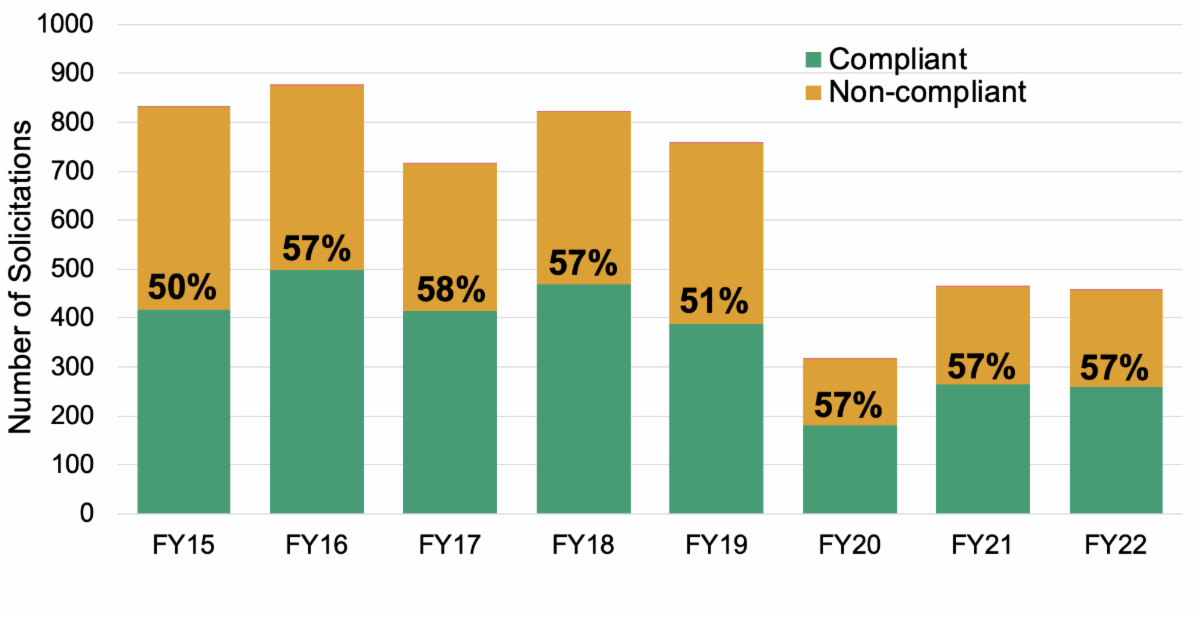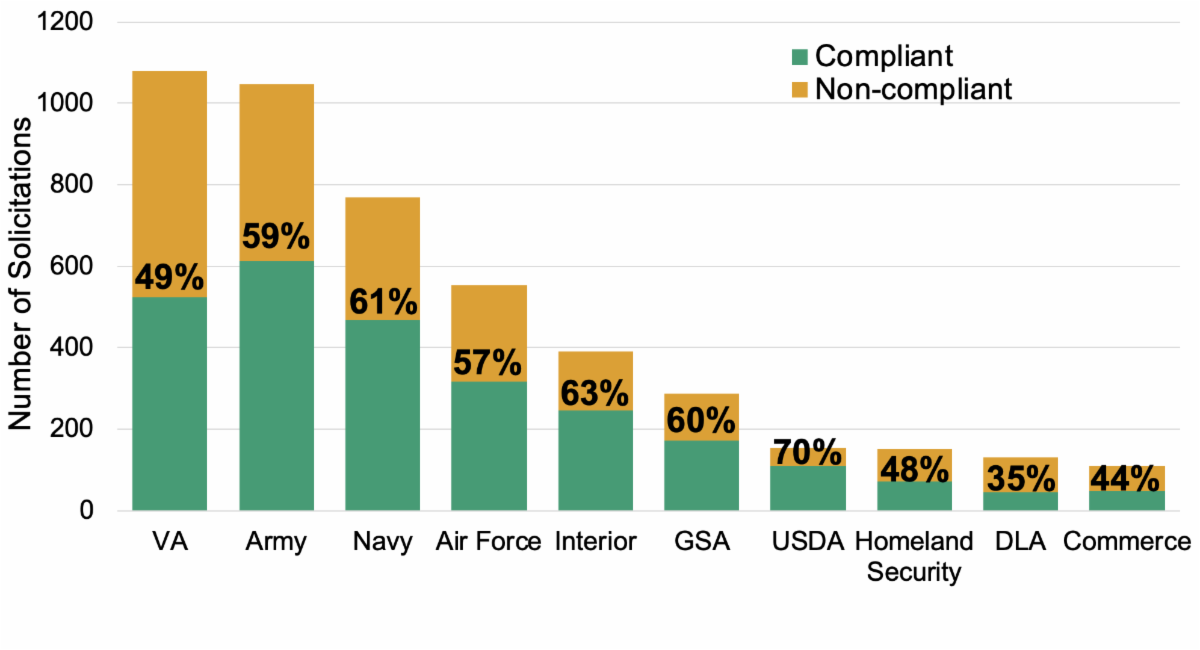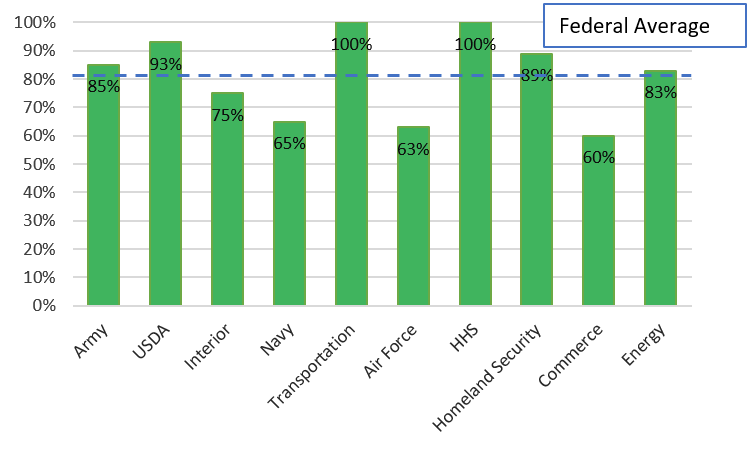|
Each year since 2015, we have pored over federal solicitations of products that use energy (and services that require energy-using products), looking at compliance with statutes and executive orders requiring the purchase of efficient products.
So are federal buyers doing better at purchasing energy-efficient products? The chart below tells the story.
|
|
The glass-half-empty answer: Compliance is not that great. In FY22, about 57% of federal solicitations met a minimum measure of compliance by citing the FAR clause requiring purchase of energy-efficient products. That's the same compliance rate as the year before and the year before that. Federal buyers on average are missing more than one in every three opportunities to meet statutes going back to 1992, to save energy and costs and to reduce emissions for the life of that computer server, lighting or HVAC system.
The glass-half-full answer: The long-term trend is more encouraging. Overall compliance with energy-efficient product procurement requirements increased 12% from 2015-2022. On average, agencies aren't great at getting their contractors to buy efficient products, say, having a food service contractor outfit a commercial kitchen at a federal site with efficient appliances. But the compliance rates for direct purchases - when an agency buys products for its own use - are improving. And as the chart below shows, agencies that are among the largest federal purchasers show compliance rates better than the government-wide average.
|
We know that solicitations don't tell the full story, but monitoring them helps us better understand the effectiveness of policy, training and other efforts to increase procurement of energy-efficient products. For more information on this process and the results, visit our energy-efficient procurement webpage.
|
|
|
Compliance with mandated federal purchases of biobased products is significantly higher than with the older requirements for buying energy-efficient products, according to a recent U.S. Department of Agriculture report on its BioPreferred Program.
Using a similar methodology as Berkeley Lab, USDA began tracking federal solicitations for services that typically can involve biobased products in 2021. By FY2022, the agency's first full year of data collection, USDA found a government-wide compliance rate of 81%, defined as the percentage of FY22 solicitations that included the FAR clause mandating federal purchase of biobased products where available. As with the Berkeley Lab findings for solicitations of energy-efficient products, USDA found significant variability in compliance among agencies (see chart below).
USDA's review focused on U.S.-based service solicitations (e.g., for construction, fleet management, food services, groundskeeping, janitorial services, and road building). A key driver for USDA's review is to identify non-compliant solicitations and contact contracting officers requesting inclusion of the appropriate FAR clause - or an explanation for non-compliance. USDA staff say anecdotal evidence suggests the intervention works: Federal buyers appear to be revising their solicitations to comply with BioPreferred mandates, and federal contractors reported increased purchases of the thousands of products in the BioPreferred catalog, with spending growing by 26% in FY22.
|
|



